What does it take to make a career in music work? How do artists survive financially? Does triple j make you or break you? And what about Australia’s problem with diversity?
The issues facing the local music industry might change, but those are the questions we’ve seen asked again and again: they’ve come up when festivals have been called out for having all-male line-ups, when high profile acts have been accused of discrimination, or when artists have spoken out about how little they make on a download.
So to find out what it’s really like to be a full time musician in 2017, we asked 10 different artists from a range of scenes – from rock to pop, hip-hop and electronic music – for their perspectives.
All of their answers were different, but each of the artists we spoke to was remarkably candid: Montaigne told us that she earns a weekly salary of $200 for her music career. Art vs Science’s Dan Mac revealed that not getting Album of the Week on triple j really hurt their last LP. Brendan Maclean danced on the grave of the Aussie mega-festival, and Camp Cope’s Sarah Thompson spoke about how tiring it is having to prove yourself as a female artist at every show.
What we learnt? The Australian music industry may not be perfect, but with minds like this leading the charge it’s hard not to feel optimistic about the future.
How hard is it to make a music career work financially?
Ali Barter
When I started playing music I didn’t realise how much touring cost, so that was a really big shock for me. The problem with Australia is that we just don’t have as many places to go, so you can’t tour constantly and make your money that way.
“At the moment, it’s beg, borrow, steal and live pretty frugally” – Ali Barter
It’s difficult, but I don’t really know what you do about that. If artists were making an income from record sales , maybe it would be different. Or if you are getting bigger advances from labels, it would be better. But at the moment, it’s beg, borrow, steal and live pretty frugally.
Probably the thing that I find the hardest about playing music is financially supporting yourself, and also battling your head. A lot of the time you are like, “What the fuck am I doing?” Because people like my music and people want to come to my shows, which is great. But I can’t buy groceries or get my hair cut.
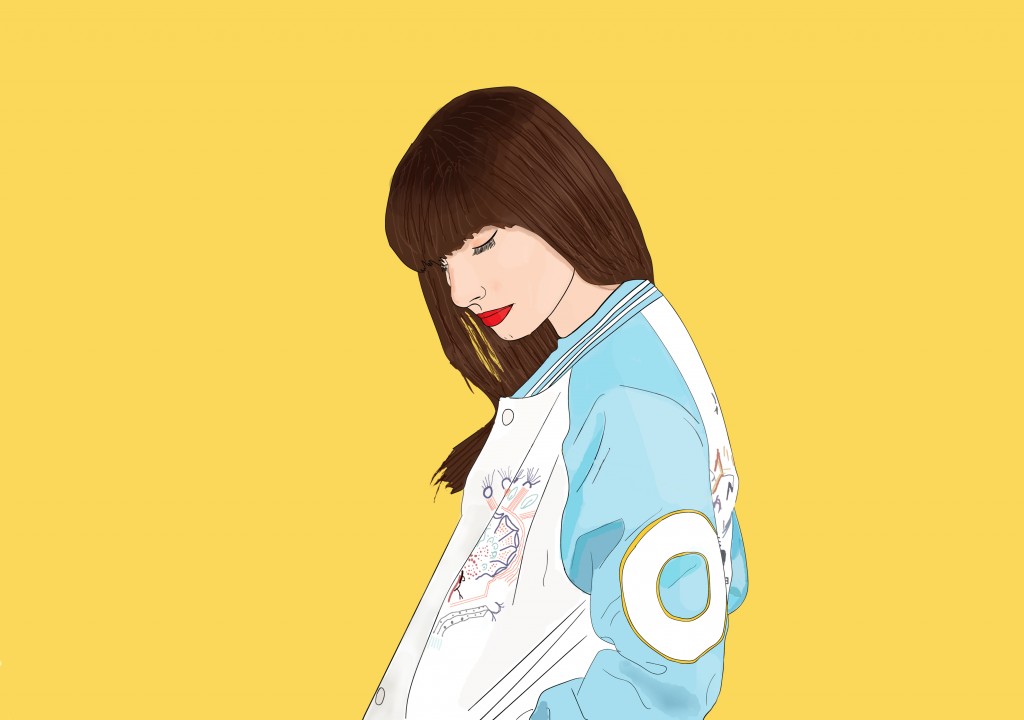
Nina Las Vegas / @mattjdesigns
Nina Las Vegas
I can only really speak for electronic acts that play in nightclubs, but I definitely think it’s the hardest it’s ever been. There’s really no [weekly club] residencies that traditionally kept a lot of people afloat. And not just in Sydney, it’s all over Australia at the moment. Local clubs are shifting towards a bar model or just choosing to book locals, which is great. But it just means that people trying to be artists are finding it hard to get the smaller, bridging gigs that fill the gaps between the actual shows.
Montaigne
It’s pretty hard. I think that most people struggle with it. I feel like there would be many, many more musicians breaking through if it were easy to financially support yourself. Musicians’ income avenues are multifarious – you can’t just rely on touring revenue, or recorded music revenue, or digital plays anymore. You need a bloody pyramid of cards. And if you take one out from the pyramid of cards, it’ll all come tumbling down. Things are very dry until you start selling out Enmore Theatres.
It depends also on what your set-up as an artist is. I’m a solo artist, so I have to hire a session band for every single show I do. They’re all very expensive, and they have travelling costs as well. We have to pay for the flights, accommodation and their per diems. If you’re in a band, then I guess you’re splitting what you make however many ways between each of the members.
Banoffee
Look, it’s a bloody hard job trying to live purely off music here. And I think there are a couple of reasons for that. One is that unlike some European countries, we don’t have government support in the form of a continual Centrelink-style payments for artists.
And that can be hard because when you’re touring, you’re constantly having to take time off off work. Once you get to that mid-level, it’s really hard to make music and keep a job. So you get to a point where you have to have music as your entire income stream and that’s really hard here, because there aren’t as many cities to tour and only a very specific genre of music does well with rural touring.
Is the Australian music industry racist, sexist or homophobic?
Brendan Maclean
Yeah. As a queer artist, and a proudly queer artist, it is very clear that homophobia still exists for me in how venues approach you, how booking agents approach you, in what festivals you can or can’t play.
“It’s a big white boy’s club and that is to the detriment of people of colour, queer artists, trans artists and women” – Brendan Maclean
People in high ranks still don’t want to be outed in that boy’s club of the music industry, and it really is one of the last bastions of that sort of Mad Men-esque, ‘doing coke at lunch’, kind of world. It’s a big white boy’s club and that is to the detriment of people of colour, queer artists, trans artists and women.
Nina Las Vegas
[Answering the question ‘Is the Australian music industry racist?] I think within it’s not, but I don’t think it’s very diverse. I one hundred percent do not think it’s diverse enough at all. And I’m not just talking about skin colour – in Sydney, especially, you can’t live if you want to just make music. It’s too expensive to survive.
So I do feel that there’s a lack of diversity, because often all the people that are doing well are people that don’t necessarily come from privilege, but have a supportive family. They’re able to take the risk, or able to buy the software, or able to get things mixed well. And that stuff all costs a lot of money. That’s where I think the lack of diversity is coming from.
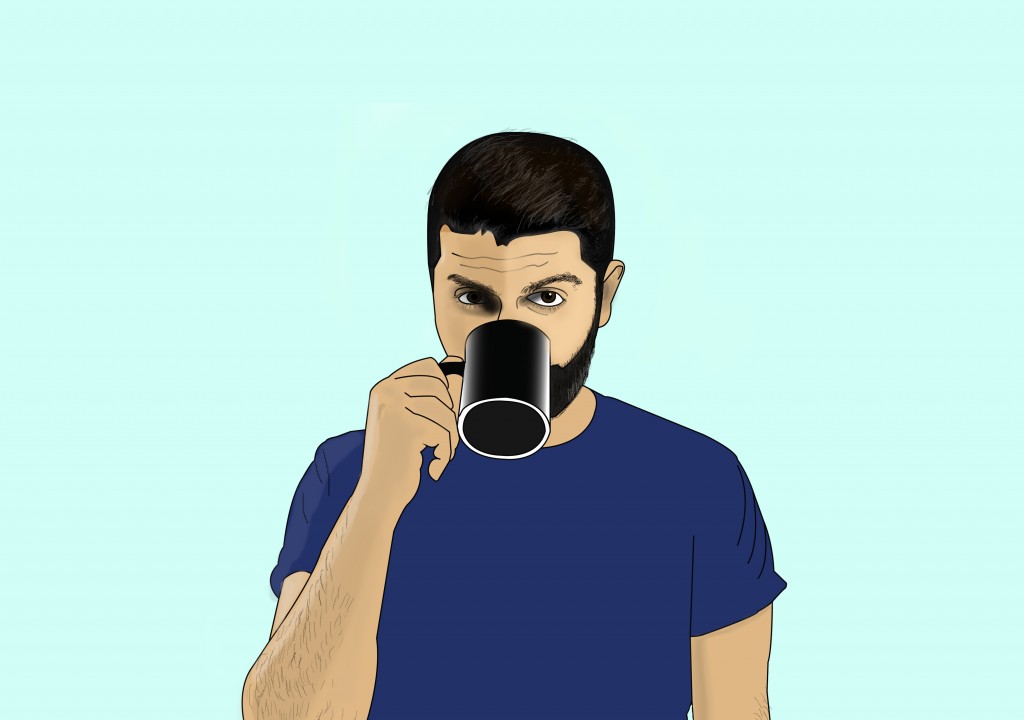
Motez / @mattjdesigns
Motez
I personally have not experienced first hand racism, and I’m Iraqi born and bred. My dad is an asylum seeker. I did a little Facebook post about a year ago, marking my ten-year anniversary of moving to Australia and people were very, very supportive of that. I’ve rarely gotten any abuse or racist comments.
But I think when it comes to sexism, we have a lot of ground to cover. I think that the perception of female artists, female DJs, and female music producers needs to change.
Banoffee
Yeah, but it’s definitely improved. I mean these sort of questions never used to be asked in interviews – people just didn’t pay attention to these issues. I think privilege is still the number one factor in people having a large amount of success here. If you look at who is in the Hottest 100, for example, you realise that you can’t blame the public for voting for what they hear. It’s that we’re not hearing many women, we’re not hearing many POC or people from the LGBTQI community. And I think that’s a huge issue in Australia.
It’s still a huge issue in venues. A lot of venues don’t have a no-tolerance policy, so artists are going home feeling like they were unsupported on stage, or had to leave a show they were performing at [because of abuse], instead of venues really taking a hard line against people who come in and are disrespectful or racist or sexist or homophobic.
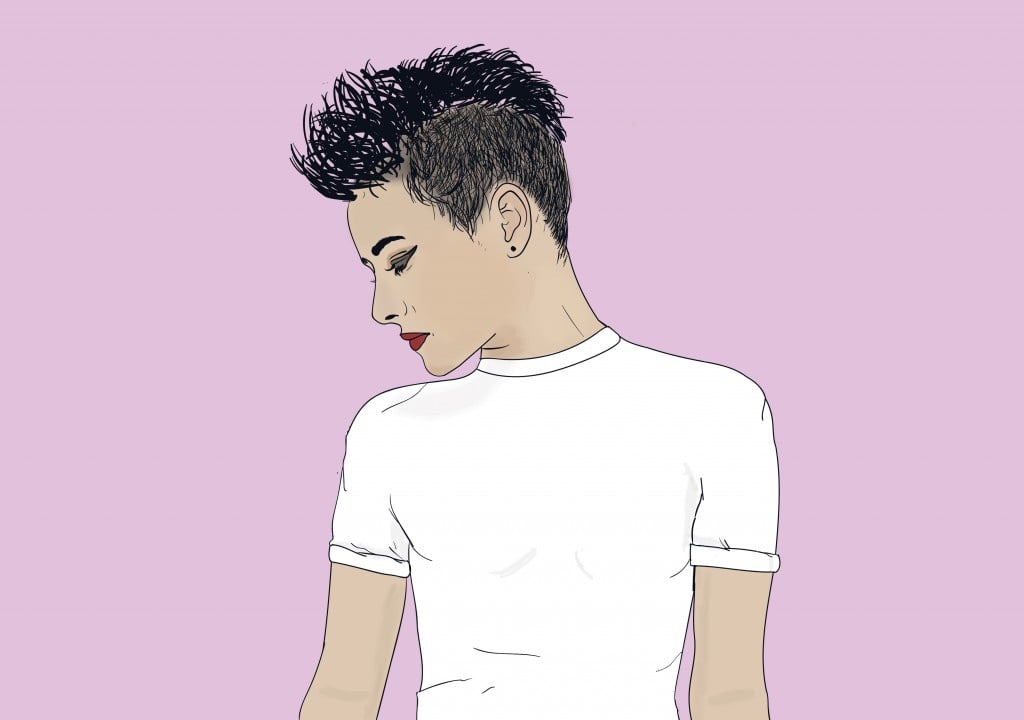
Montaigne / @mattjdesigns
Montaigne
Knowing human beings in Australia, probably, but I couldn’t say just because I don’t really experience it. I have a very ethnically ambiguous face. Often I’m asked what my background is because the punchline to the question is like, “Oh, because you look so exotic.”
I’ve got a very privileged perspective because I don’t cop any racist backlash, but I imagine it totally happens. Like, there are fucking dickheads out there.
Camp Cope’s Sarah Thompson
Oh, a thousand percent yes. We’re very vocal about it so we probably get it a bit less than other people, but we still get it. I feel like there’s a lot of venues that are actively trying to change which is really good, but we still go to venues and have managers, or bar staff, or sound people treating us subpar to how you know they would treat other people. Which is always fun!
It’s slowly getting better, but it is very tiring to continually fight for it. Sometimes you just can’t be bothered, you just want to walk in and be able to just play a show like a normal person and not have to go fight for what everyone else gets [automatically].
How essential is it for triple j to get behind your music?
Nina Las Vegas
Look, it’s such a myth that triple j makes or breaks you. Australia is the only place in the world where a radio station has that much talk about it. So many acts are made without it: Marshmello has never been played on triple j apart from on specialist shows, and he just sold out The Enmore.
You can make more money on Spotify now than radio play. So I think radio is obviously good, and being curated by triple j is really cool and definitely helps in regional centres of Australia. But it takes a lot of songs in rotation, or to be Amy Shark with ‘Adore’, to be that kind of sensation. It’s rare. People have to realise that it’s not for everyone, and it’s not everyone’s path. If it happens to you, that’s amazing. But it didn’t happen to Disclosure until their album, and they had two or three EPs before that.
“Ninety percent of the work you do will go unheard” – Nina Las Vegas
People forget that not every club track, not every rap song, not every band’s song needs to be a radio song, because not every song is on the radio. Ninety percent of the work you do will go unheard. I tell a lot of people that if you’re not listening to the station, don’t be offended if you’re not on it. Beause it isn’t the market which you want, and if you don’t even listen to it, why would you care?
People worry too much about getting on there. But if you’re not added [to rotation on triple j], it doesn’t mean you’ve failed.
Brendan Maclean
So I should say right upfront that I worked there for six years. I’ve seen it from both sides. I‘ve seen artists go from being tiny to getting full features and their venues are huge by the end of the year. It’s a great way to get people to your live shows. That’s one of the biggest things I’ve noticed – when people get on high rotation there, their live shows tick up really, really quickly.
It’s a really great way to get famous and richer quicker if you do super-duper well on triple j. But it’s definitely not the be all and end all. They haven’t heard of Richard Kingsmill in the UK – so you’re gonna be fine.
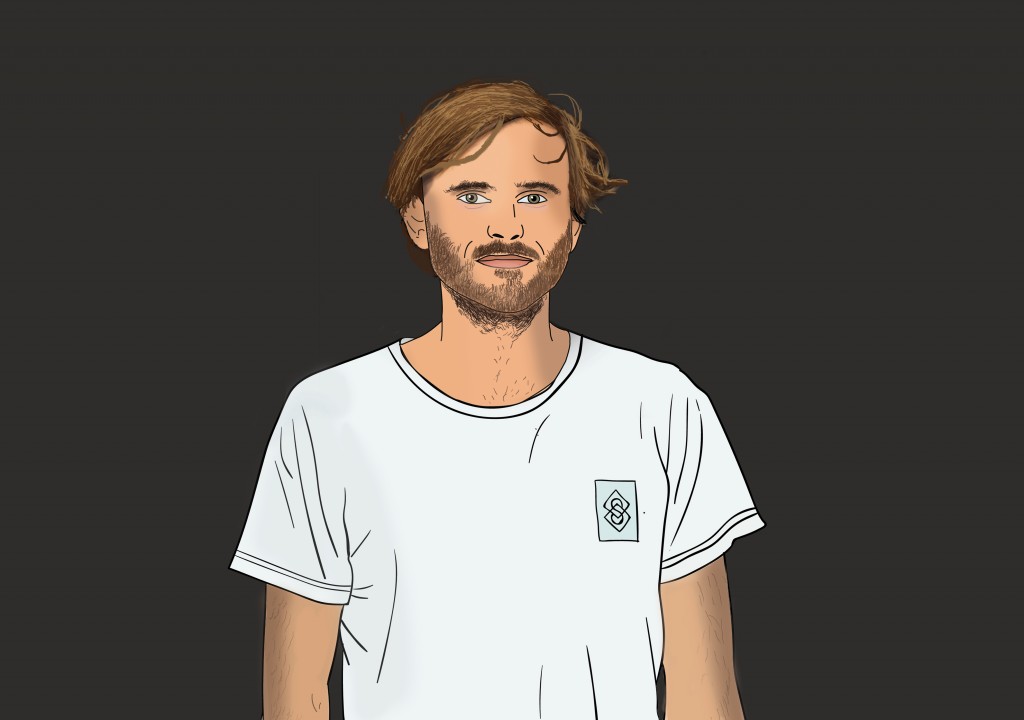
Art vs Science’s Dan Mac / @mattjdesigns
Art vs Science’s Dan Mac
We felt insulted with our last album, because we didn’t get Album Of The Week. We were counting on it a bit. You feel it. Because national Album Of The Week is pretty awesome marketing, isn’t it? For your tour, for your release, and for getting on festivals. We could probably do it without triple j but it’s a lot harder. It’s certainly a lot easier with triple j right behind you.
Camp Cope’s Sarah Thompson
It’s great if they want to play you and obviously it’s helpful, but I don’t think it’s the end of the world if they don’t. I feel like it brings a different crowd of people to your music which can be good and bad as well. There’s a lot of people who listen to triple j who wouldn’t necessarily listen to you in a normal day, and there’s pros and cons to that. You cop a lot more abuse online when triple j write about you. It’s great for putting bands up to that next level but if you define yourself by how much you get played on triple j, then you’re probably not really on the same page as we are.
Are Australian festivals doing enough to tackle their diversity problem?
Nina Las Vegas
I don’t think so, at all. For a festival like Days Like This to have not even one woman on the line-up – the fact that we’re still talking about it in 2017 is dumb.
Yes, I agree that acts should be booked on merit and not their sex, but I’m just asking you to show a crowd – which is going to be full of women as well – that women can do this. The argument that there’s not enough women to book or they “tried” is just the dumbest thing in the world. It’s just bullshit. And it’s not how these times should be.
It’s just so crazy that some of these promoters and curators don’t see that if you get behind someone that’s from a minority or from a smaller group, it goes so well so fast, because you’re different. And everyone’s after a point of difference.
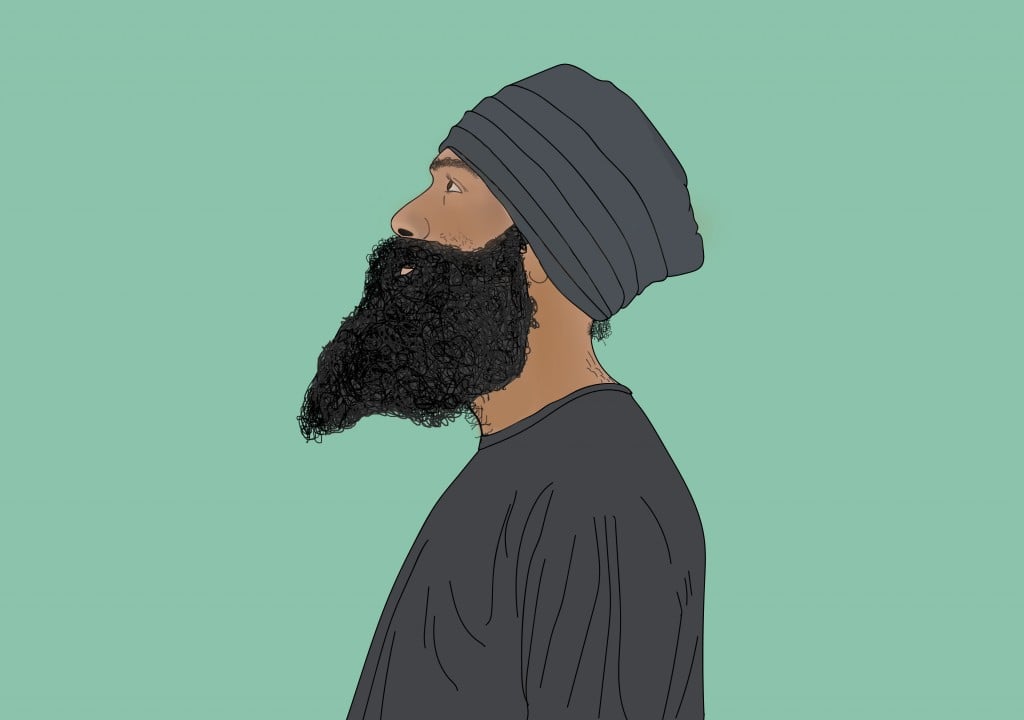
L-FRESH The LION / @mattjdesigns
L-FRESH The LION
I think they are trying to but we still have a long way to go. I think the one thing that I articulate to anybody looking to improve is that diversity can’t be a surface level thing. It needs to run deep within the entire fabric of that organisation.
For example – and I’m speaking from personal experience – you can’t have a group of white people looking at something Indian themed and and think they’re doing an awesome job. You’ve got to bring people from communities that you’re aiming to reach on board. You need to have those people actually within your team.
Banoffee
That’s a hard one, because I notice the change. I notice the effort being made, but I can’t say that I’ve seen many line-ups announced where I felt that it’s been a fair mix and a true representation of what is in Australia at the moment.
I think [festivals] are looking at the quotas they need to hit in order to just scrape by and going for that, and that for me isn’t good enough. I also feel that a lot of festivals and bookers will pick one woman, or one queer artist, or one artist of colour that is doing well, and then use them for every show. But you’ve got to be looking for the upcoming artists, the people who aren’t already being represented, or getting radio play.
Montaigne
Are they? I don’t know. Part of the problem is that when festivals book acts, their criteria for choosing an artist is “Is this artist getting played on radio? How many people will they pull to the festival? What are their numbers on social media?”
There’s a hugely diverse range of artists putting out music, but the ones that are getting played on radio are in large part male and white, which is then what ends up at festivals because the festivals are like, “Well, the people that are getting played on radio are the ones that are going to pull the audience.”
It’s a complex issue. Festivals will be more diverse when radio plays more diverse Australian artists, and radio will play more diverse artists when they’re given the opportunity and resources to make music and publish it.
“There are so many fucking bands in Australia that come from North Shore Catholic boys’ schools” – Montaigne
There are so many fucking bands in Australia that come from North Shore Catholic boys’ schools. Private school boys that are all fucking loaded, their parents have money, so they grew up with laptops and the programmes you need to make music. You can make music just with that. You can afford to pay studio fees. It’s harder for people who come from more disadvantaged situations to have the tools to make music.
What I’m trying to say is that it’s like an onion. There’s so many layers. I feel like festivals are hit harder than they should be. I think they’re the scapegoats in a tricky situation, and I think the broader issue is like, “Well, why are non-white people so disadvantaged and how can we fix that?”
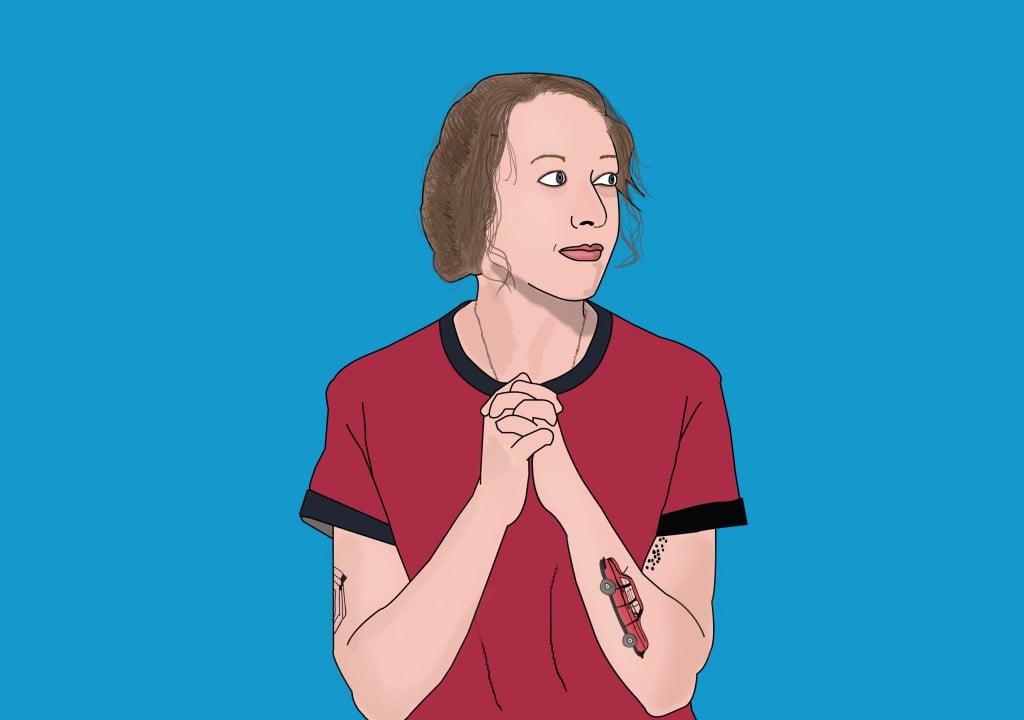
Camp Cope’s Sarah Thompson / @mattjdesigns
Camp Cope’s Sarah Thompson
I think some are. The thing I always think when we get asked to play a festival is if they have a bad track record and they’re not going to tell me who’s on the line-up, I’m just going to say no. Because we’re probably going to be put on there as token female band so they don’t look like assholes. You don’t want to be the token band, you want to know that you’re going to be on a diverse bill.
Brendan Maclean
Oh, they’re messed up! Oh my god. How many times can you bring The Wombats out? Come on guys! Is it like you get them out seven times and the eighth one is free?
It is our job to make the next generation of festivals better and I don’t care if people call me a social justice warrior for saying that. Safe spaces are really important and at festivals there are so any people who don’t feel like they can access a festival. Because they don’t feel comfortable there, because their body doesn’t allow them to go to the festival. So many festivals aren’t set up with ramps and basic entrance things like that.
“It is our job to make the next generation of festivals better” – Brendan Maclean
I think improving those spaces will probably help solve a lot of the violence, especially sexual assault in festivals. If we really pick on the details – What’s going on behind the trees? Why isn’t this area lit? Why can’t you get quick access to security from this camping zone? And of course: Why isn’t your minority represented at that festival? Which it so often isn’t. Or it’s done in a really condescending way and the festivals jump up and down waving their hands about how excited they are to have one female of colour.
But there’s some really, really cool small festivals getting it right at the moment. I am enjoying the death of giant, monster festivals, personally.
Is breaking overseas still the end goal?
Motez
It’s not really the end goal, I think it’s one facet of success. I firmly believe that you cannot have a solid success abroad unless you have a really solid success in your hometown or in your home country. You need to have a solid foundation to launch your career elsewhere. There are probably people who have proven otherwise – like Iggy Azalea – but I think, generally speaking, it’s very important to have a very successful career in your home country first.
Montaigne
Yeah, because Australia is a tiny, tiny market. I really enjoy performing, and I can’t just perform once in each state twice a year for the rest of my life. There’s more shows and more money overseas.
“I still don’t make money. I get a $200 a week wage” – Montaigne
The thing is, I still don’t make money. I get a $200 a week wage, which I’ve negotiated with my management just because I’m still recouping money to my label who pays for all my touring and my bills. My management have deferred their wage for the three or four years that they’ve worked with me. They don’t earn any money from me, because I just don’t make any fucking money yet.
Part of that is because I’m not a high-level artist yet. I haven’t been around for ages, I haven’t put out that much music, and I haven’t done huge venues. That shit just opens up so much when you go overseas because there are so many more people.
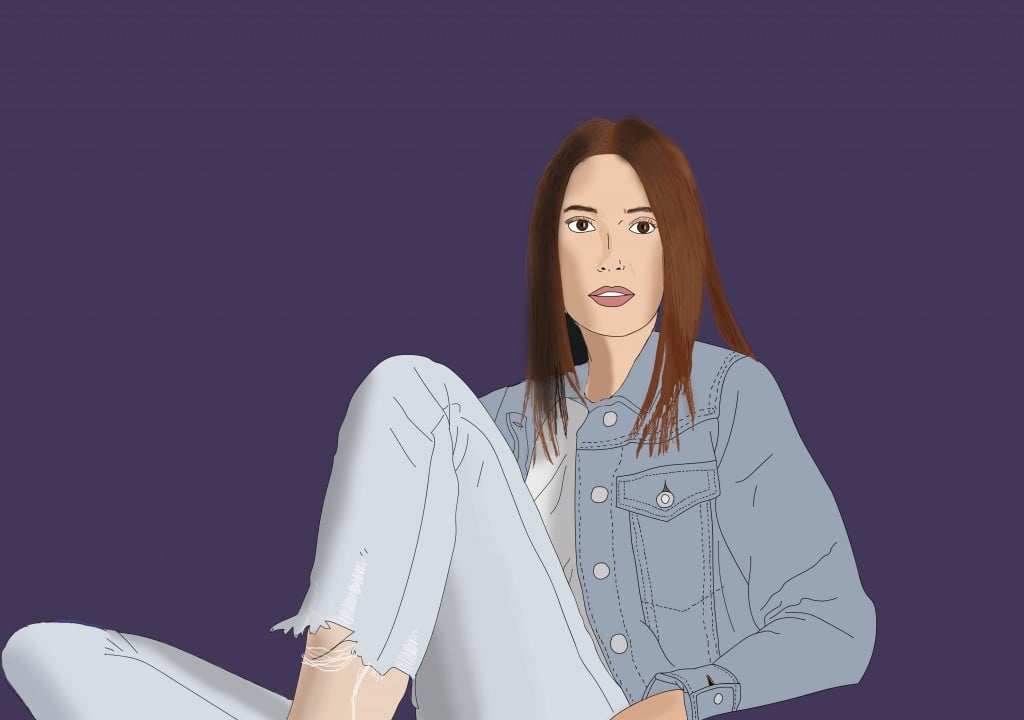
Ali Barter / @mattjdesigns
Ali Barter
I would love to go overseas, just because there’s more opportunity and more places you can tour. You can do a million shows just in California, whereas in Australia you go to New South Wales and you’re gonna play Sydney, Canberra and Newcastle, and that’s it. It’s hard to tour constantly in Australia.
L-FRESH The LION
Personally, yes. We live in such a globalised world right now, for me it’s a no-brainer. But you have to look at who you are, what you do, and where you see yourself fitting. I think for every artist it’s an individual thing. Within hip-hop there is that fantasy of trying to make it big in the US because that’s where hip-hop came from. But you’ve still got to think about it from a strategic standpoint.
Do you feel like Australia’s venues are able to properly support the kind of music that you play?
Art vs Science’s Dan Mac
Yeah, for the most part. However I think that in recent years there’s been a sort of unconscious attempt to stomp out the wildness in people. You know, sniffer dogs becoming more prevalent, not being able to smoke in certain areas, two drinks at a time, lights off at midnight. Little things that keep adding up, and I think that’s maybe having a detrimental affect on music-making. It’s hard to let your hair down and I think a lot of the best music comes from when you can let your hair down a bit.
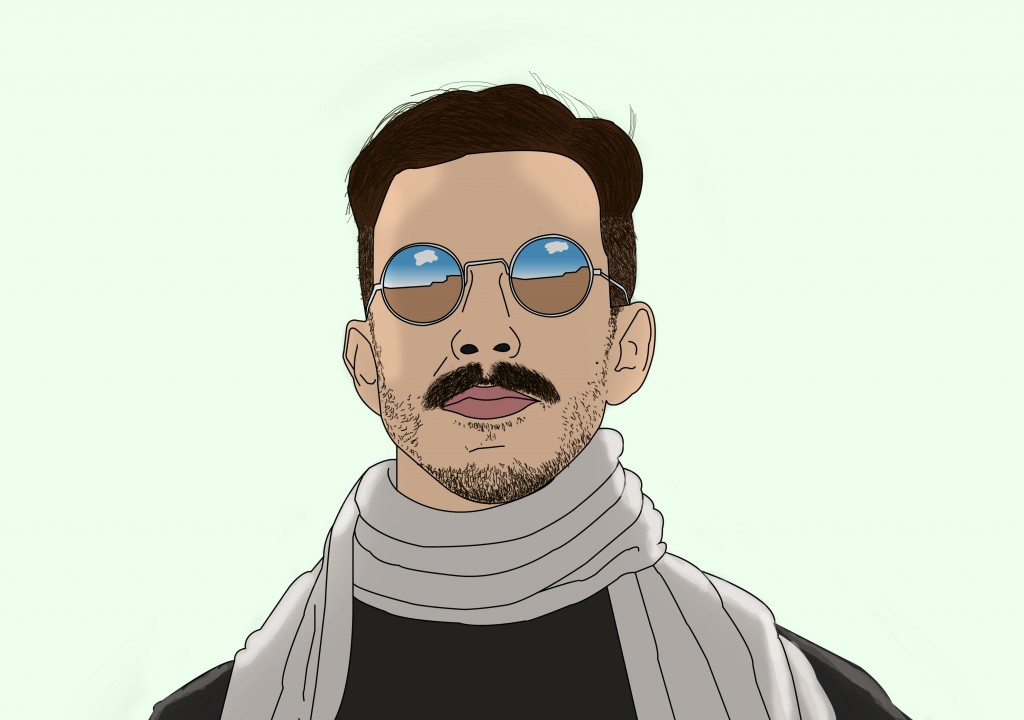
Brendan Maclean / @mattjdesigns
Brendan Maclean
I suppose, for me, I just kind of made it work. My instrument was a grand piano when I started and now I turn up to gigs with a USB. There is some thinking in that end game of how to tour and how to save money and for me, it was having no band and turning up with a USB.
If I had it my way, Brendan Maclean would just be ‘Rufus Wainwright: the Australian version’. And I’d be playing grand pianos everywhere with string quartets, but that’s just not Australia. We don’t have a big enough population to support super niche genres, which is a real bummer, because we’re missing out on some great artists. But think a lot of venues do the best they can.
Nina Las Vegas
Clubs can’t afford to take risks anymore. If you’re trying to push something different and new, which is what artists should want to do, the audience is naturally going to start out smaller.
That used to be okay, because a venue could afford to take a risk – they’d know there would always be people who’d show up, because people like going out. Now that doesn’t happen in the same way. Venues can’t afford to risk having someone who doesn’t have an instant pull. And that sucks, because does that mean you have to just be massive straightaway?
It’s so hard. [Artists] can’t afford to do something that is risky because the venue shouldn’t have to take the risk – they’re good people, who are trying to keep things afloat, but in order to do that they have to have theme nights and throwback parties just to get people in. So those interesting nights that push new music still happen, but potentially it’s with a brand involved as a sponsor, which isn’t everyone’s cup of tea.
L-FRESH The LION
I think that my idea on this will be very different to most people’s. I’m based in Sydney, which is facing a massive shortage of live venues. But we also need a more diverse range of venues to accommodate everybody.
I often play music in venues that I wouldn’t go to if I wasn’t a performing musician. I’m a Sikh person in Australia – my people just don’t go to venues where live music happens. So for me to expect members of my community to come to my shows is unfair. It’s just not a part of our natural thing. So I need to find spaces where I feel comfortable to go as an audience member, and then also to be able to perform.
For me, the answer is to find more venues that make it financially feasible for me to be able do that. At the moment, it’s not a reality. Which is why I haven’t even thought about doing a whole tour. It’s just not possible for me to do that, at all.
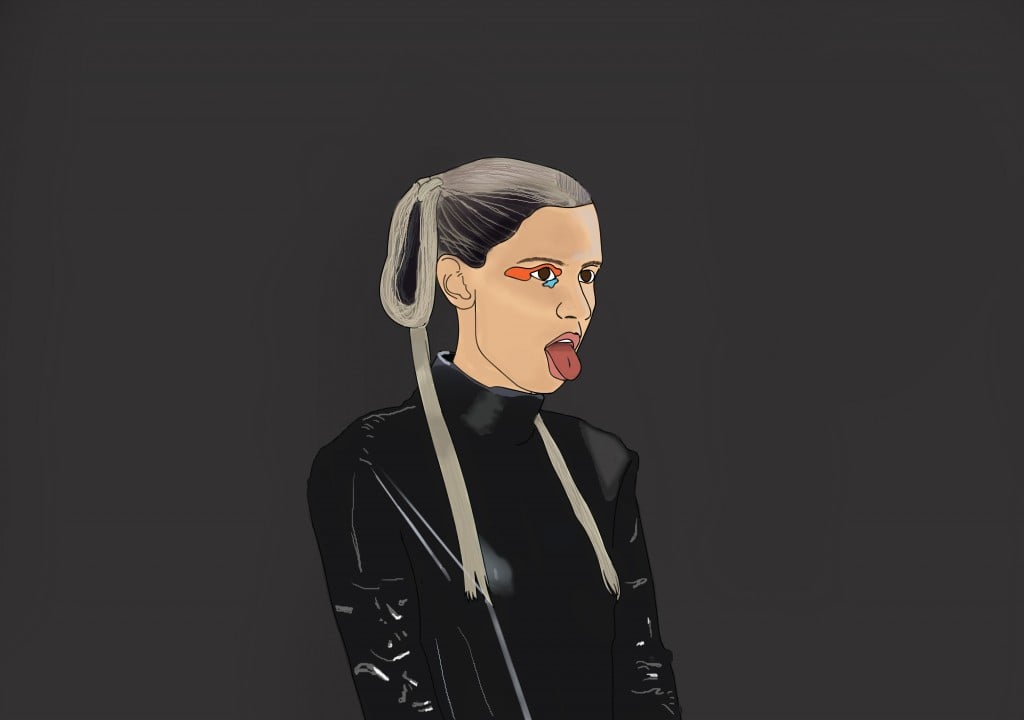
Banoffee / @mattjdesigns
Banoffee
I think they’re getting there. I do think the people who run these venues are very passionate about the industry. They treat their artists with respect. But I think especially because we have a lot of historic venues, the sound systems in most rooms aren’t built for electronic music, or for music with a lot bass in it – they’re built for rock, or folk, or country music. We don’t have that many venues, outside of clubs, that can handle electronic music.
If you could wave a magic wand, what’s the one thing you would change about the Australian music industry?
Ali Barter
I think more financial support, like grants. And also some more awareness at a government level of what we do – in Europe, playing music or being an artist is respected, and they artists there more financial assistance. In Australia, artists are looked at like you’re a bum and you’re just hanging around, strumming a guitar or whatever.
Motez
I think it would be proper equality for both male and female artists. I would love to change that.
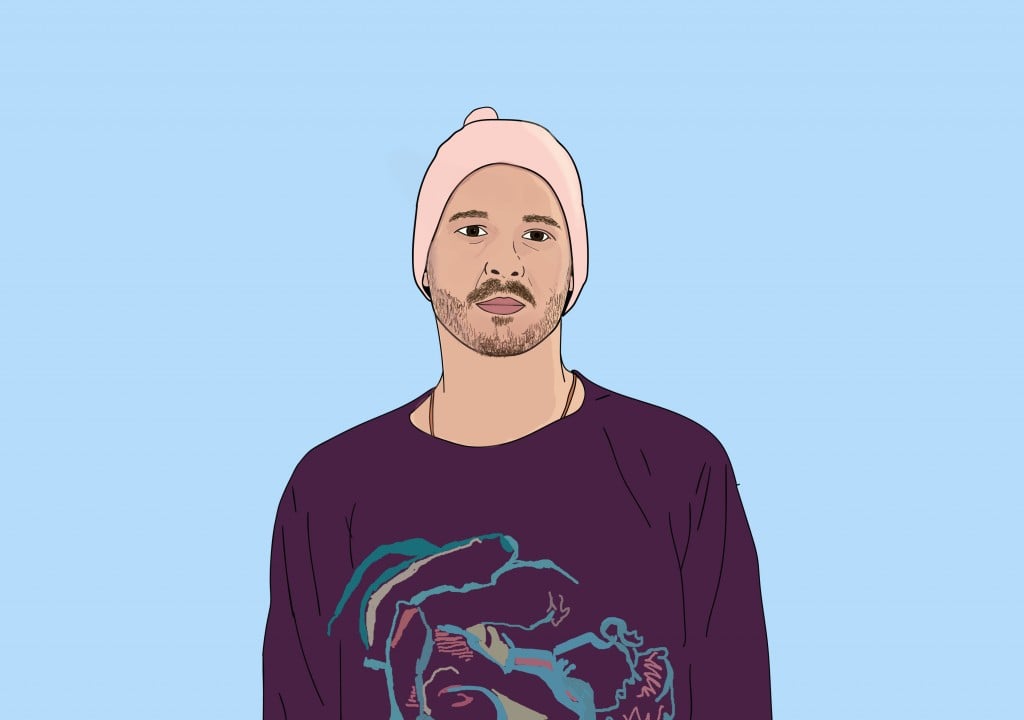
Tigertown’s Chris Collins / @mattjdesigns
Tigertown’s Chris Collins
To be honest, I would create one or two other nationwide radio stations. Because while the triple j thing is super great, I think there’s a problem with the fact that we only have one. There’s one dude making all the decisions. I look at other countries – like, the UK has BBC One, Two, and Six – which means there’s more opportunities for artists to get airplay. So I think I would create two other triple j-style radio stations.
Nina Las Vegas
Oh man, I just wish I could change those lockout laws. It’s just put everything back five years.
In Perth the mining boom’s over so there’s less kids out. In Brisbane, they live in fear of stronger lockout laws and less kids are out. Clubs I used to go to that were always busy are shutting. All over, clubs have to change their whole format to make sure that they’re not wasting money on nights that don’t work. I definitely do think we’re all in conservative times.
L-FRESH The LION
I’d just like to break down those barriers around diversity.
Banoffee
Easy. The one thing I would change would be white male privilege. Which would be in every aspect of Australia, but if I only got to do for music, I’d do it for that too.
Interviews by Jules LeFevre and Lauren Ziegler
Illustrations by @mattjdesigns


